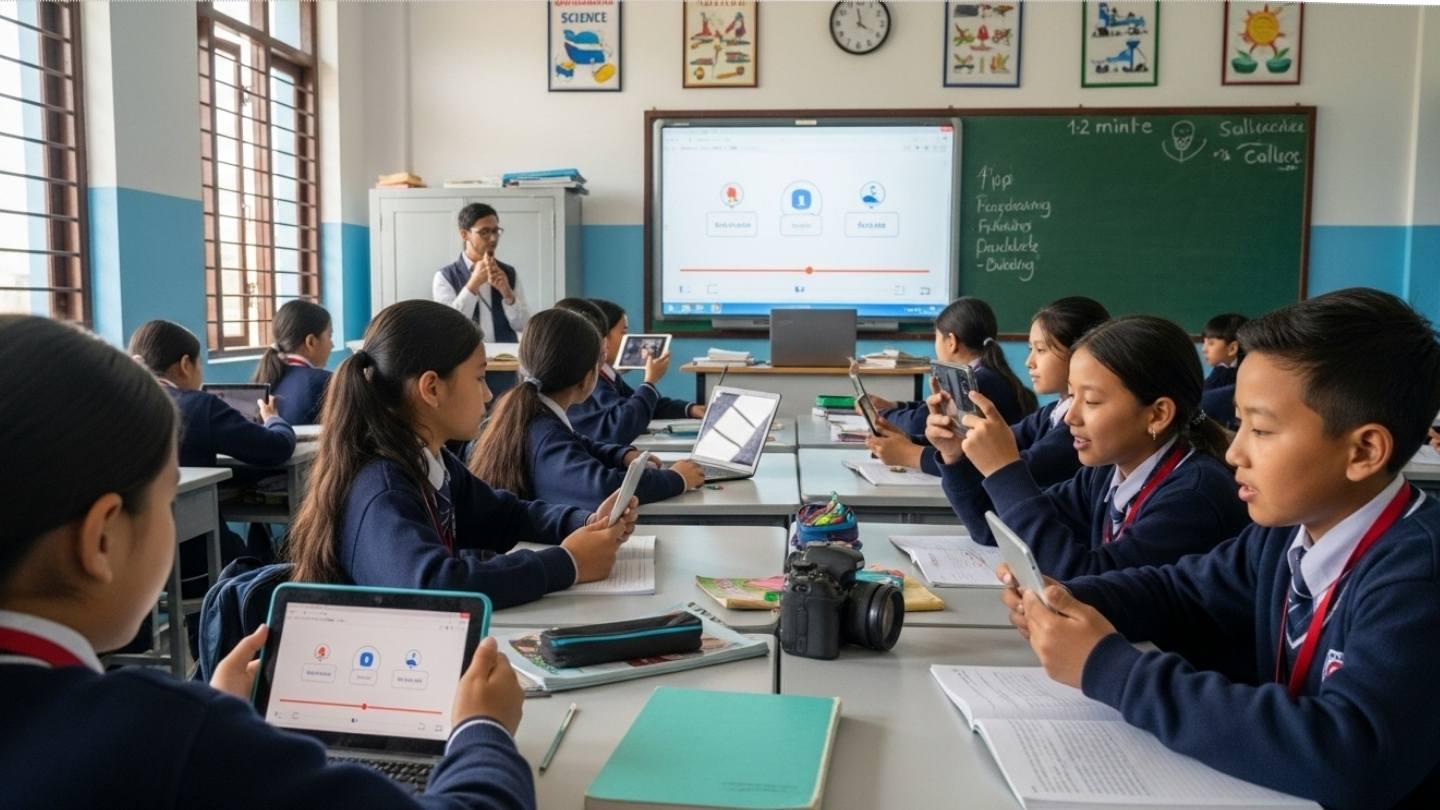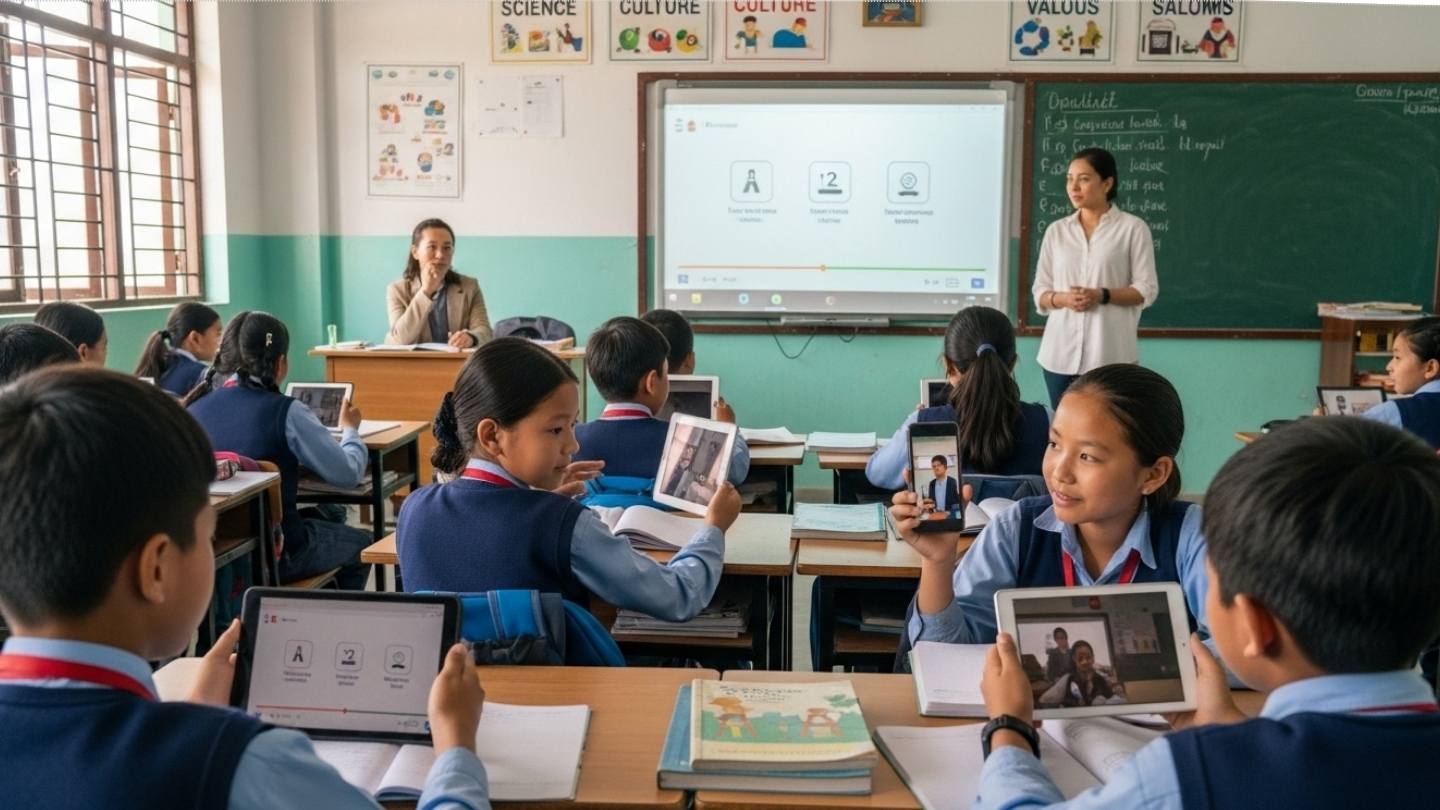
Generation Alpha and Learning in the 21st Century
Generation Alpha refers to children up to 14 years of age born between 2010–12 A.D. and 2024. This group of children is also called school-age children. From those just beginning to crawl to those currently studying in Grade 10, all fall into this group. In world history, this generation is regarded as the most observed and discussed cohort. Seen as the new generation of the twenty-first century, the psychology, thinking and social outlook of these children are different from all previous generations.
Fundamentally, Generation Alpha is a digital generation. Psychologists say that their way of thinking and working is similar to that of computers, meaning impulsive and immediately result-oriented. This generation wants instant information about what outcome will follow from which action. They tend to lack the patience to remain focused on a single subject for a long time or to listen attentively to others over an extended period.
Digital Childhood, Socialization and the Impact of COVID-19
In every generation, children display self-centred tendencies during adolescence. However, because the generational gap for this group is very wide, such behaviour appears unusual. As they give more importance to friends and peer groups and less value to parents and traditional culture, adolescence has remained indifferent to socialization and the transmission of social values and practices. The current generation is also reluctant in this regard.
Compared to Generation Z, Generation Alpha is less active in socialization. The reasons identified for this are excessive digital exposure and the distance created by the COVID-19 pandemic. During COVID-19, social gatherings and interactions did not merely decrease; the pandemic also brought children around the world extremely close to screens and technology. As sports and other recreational activities that used to be carried out through social interaction and physical presence shifted into virtual forms, Generation Alpha came to regard mobile phones and technology as an integral part of life.

Brand Consciousness and the Home Environment
At present, many parents hold the belief that mobile phones, laptops and social media have had a negative impact on children’s learning. Generation Alpha, however, has developed a mindset that no task can be performed without mobile phones. The transitional situation that has emerged between parents and Generation Alpha has created direct or indirect conflict in many families.
A key characteristic of Generation Alpha is their trust in brands. Parents are generally ready to use the mobile phone of any company as long as it works well for communication, but their young children insist that only certain branded mobile phones should be used. Not only that, they are very alert about whether the food they eat, the clothes they wear and the content they watch are from recognized brands or not. Parents, on the other hand, hold the view that if something is cheap, good and durable, that is what should be chosen.
Generation Alpha is the generation that enjoys eating less tasty food in outside or branded hotels rather than more delicious food prepared at home.
Technology, Social Media and Learning
Social media and technology have become inseparable parts of life for this generation. These same factors have also become obstacles to teaching and learning activities. On one side, parents and teachers hold the mindset that mobile phones and social media spoil children. On the other side, learners, that is, the children themselves, consider life incomplete without mobile phones and social media.
In this contradictory situation, the challenge and basic necessity now is to design curricula that teach the art of achieving balanced socialization while also learning to use technology in a balanced way.
Aligning Curriculum with Generation Alpha
The global community, by internalizing communication, collaboration and technological literacy as twenty-first century learning skills, has been trying to incorporate the psychology and needs of Generation Alpha into traditional curricula. This generation cannot and should not be kept separate from social media and technology.
It is necessary to develop in them the capacity to use technology appropriately and selectively so that they do not become habituated to networks that are antisocial and obstructive to personality development. For this, parents and teachers must avoid being prejudiced. They should understand time and context, and take the initiative to encourage Generation Alpha to use technology in creative and constructive work.
Limitations of Traditional, Partially Revised Curricula
Although our curriculum is described as student-centred, it has largely been developed by treating the way we ourselves studied and learned as the ideal, making only partial modifications and changes. Even though we have tried to internalize new values and technology that have evolved in the world on philosophical and sociological foundations of education, the curriculum has not been able to capture society and children’s psychology.
This is because the development of technology and the psychology of the new generation have both advanced in very different forms.
When Technology-Averse Teaching Becomes a Barrier
Viewing technology as an obstacle and believing that learning can be carried out solely by focusing children on notebooks and textbooks has hindered their proper development. In a situation where children are themselves favoured by technology, curricula created separately from technology and teaching–learning activities that are not technology-friendly cannot have a positive impact on children.
For this reason, Generation Alpha tends to regard reading and writing activities limited to notebooks and textbooks as an unnecessary burden. This generation cannot remain patient for long and does not like to listen to long stories and narratives. If one- to two-minute video clips are created and discussion and interaction are conducted focusing on these clips, they can learn in an enjoyable way.
Whether the topic is social customs and traditions in social studies, or cause-and-effect activities in science, real-life small events can be captured in one- to two-minute videos. If these are then shown in the classroom through smart boards or even via mobile phones, followed by discussion and interaction, our classrooms can be made lively within the existing structure.
Rethinking the Classroom for Doers, Not Just Listeners
If students sitting in the classroom are preoccupied with when they can go home and enjoy using mobile phones and laptops, the time spent in the classroom naturally becomes tedious and uninteresting. Generation Alpha should not be blamed as a lazy generation that does not pay attention in class, shows no active participation in reading and learning activities, and is overly excited about technology.
Instead, it is necessary to understand their psychology and bring immediate changes to the traditional curriculum. This generation learns not just by hearing and seeing but primarily by doing. If teachers believe that they can present new things in the classroom and attract students’ attention solely by their own effort, they themselves will become discouraged.
Classrooms as Spaces for Interaction Around New Experiences
The classroom should not be a place where new things are simply transferred to the new generation. Rather, it should become a space where the new generation interacts about the new things they have encountered. For this, fully student-centred teaching methods, student-friendly curricula and corresponding physical infrastructure must be developed.
The Centre for Education Human Resource Development has, through Sikai Chautari, developed subject-specific content contained in textbooks as well as reference materials. In recent times, work has also begun to develop one- to two-minute video clips focused on Generation Alpha.
The Curriculum Development Centre, the Centre for Education Human Resource Development and the education sections in every local level must make arrangements to provide teachers with necessary materials and training regarding the psychology of Generation Alpha and their learning processes.
Real learning will occur only when teachers themselves become technology-friendly and take the initiative to use technology as a medium in children’s learning. Therefore, teachers themselves must be ready to learn new things.
Transforming Generational Traits into Creative Potential
As Generation Alpha is growing up worldwide with a distinct psychology, we should not regard as problems their rebellion against established values, indifference toward social and cultural subjects, disinterest in tasks carried out in textbooks and notebooks, passivity in classroom activities, and eagerness to violate discipline.
Instead, these behaviours that Generation Alpha displays in practice should be accepted as generational characteristics. Technology must be made the medium of every subject and learning activity in order to transform these traits into creative and constructive work.
If we stop treating technology as a separate subject and instead present every subject through technology, only then can curricula and learning activities become student-friendly. Otherwise, the curriculum itself will continue to remain an obstacle and a burden to the learning of the new generation.
Learning Skills

